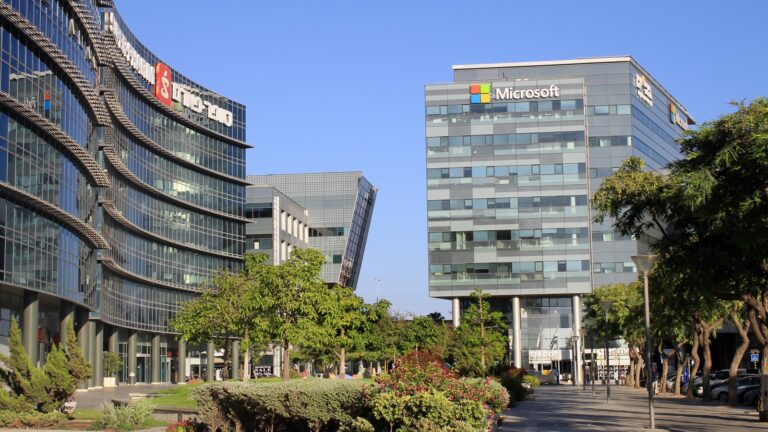When COVID hit, the world shut down. Stores, businesses, and schools were all forced to go remote. Businesses had to adapt in order to sustain production and sales, despite the state of the markets. Employees began working remotely, which resulted in increased flexibility for many people. People no longer needed to commute to work on a daily basis and were able to be equally efficient from the comfort of their homes. Co-work was originally suited to those who were young, at startups, or in a non-traditional space, but now also accommodates those who live far away or simply appreciate the culture. Many companies moved to go back in person once possible, yet many chose to continue their combination of in-person as well as remote work.

Companies like WeWork, Mindspace, and OurCrowd have thrived with the rise of co-work. In a recent survey, 84% of companies said that employees partially worked from home. 81% of those companies said that would continue in 2022. Co-work allows employees to have more flexibility, and flexibility is key. Amidst the pandemic, companies needed to think outside the box to keep their employees onboard. Co-working spaces emerged as flex workspaces that were communities in a time when people needed them. Co-work spaces allow for teams to collaborate and come together when it was otherwise impossible to do so during the pandemic, and the trends have continued afterward because it was proven so effective. Companies that are looking to expand are able to do so because the flexibility of people has increased, and efficiency with that. Therefore, companies are able to be more aggressive in hiring, regardless of an employee’s location.
Co-work is also taking less traditional forms as well. People are able to work in atmospheres that are relaxing and comfortable, as opposed to a traditional office environment. Non-traditional co-work spaces, such as the Pub Hub, provide people with great workspaces that offer comfort and productivity. Unconventional spaces provide people with an out-of-work space to be productive. The space is designed for people to feel comfortable. Pub Hub requires membership, but members can get access to any of the locations in the network. Each location also has available drinks and food to order. Pub Hub is currently in Tel Aviv and is looking to expand to Jerusalem, Ra’anana and Petach Tikva.

In Israel, startups are leading the rise of co-work, embracing it as a new aspect of their culture. Israel has more start-ups per capita than any other country, and co-work seemingly goes hand in hand with Israeli lifestyle. With added flexibility to move around physically (work from the comfort of your home or any place of your choosing), have more flexible work hours, and create more room for new members, there is no wonder as to why co-work is on the rise! SOSA, based in Tel Aviv, is a global co-work network and organization that was founded in 2014 by 25 Israeli entrepreneurs. SOSA easily creates connections between tech companies all over the world, most recently establishing a cyber security center in New York. MindSpace and WeWork are also leading the way, as co-work takes the spotlight, as each company specifically focuses on utilizing co-work to achieve more efficient networking and sales.
Utilizing co-work allows companies to build popularity and flexibility by being able to accommodate more employees and teams. Not only has co-work survived the pandemic, the flexible aspects embedded within it have led to a surge in co-work spaces becoming more available. Co-work leads to additional growth of companies and sales, having positively impacted companies, leading to additional growth and continued promotion of co-work spaces. Where will the innovators and entrepreneurs of Israel, and the world, take us during this new way of working?
Groundbreaking Israel content is developed by ISRAEL21c’s Digital Ambassadors.
Zachary Gold is a student at Colgate University. Find him on LinkedIn here.






